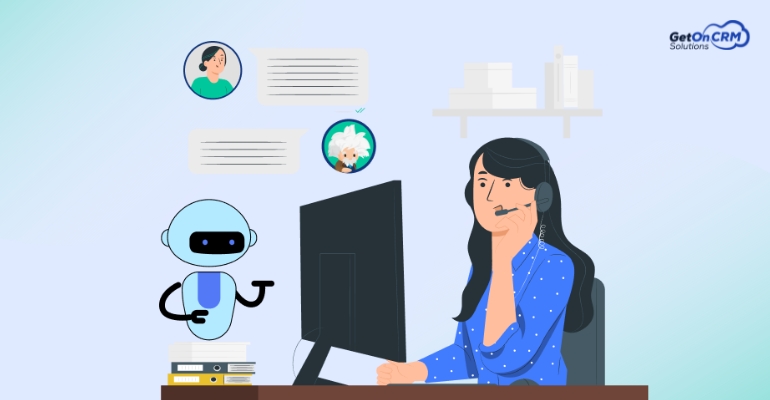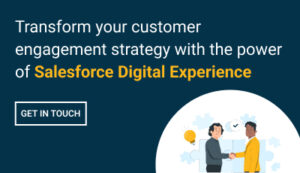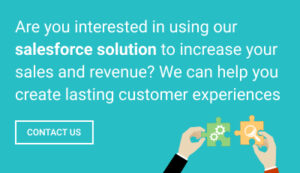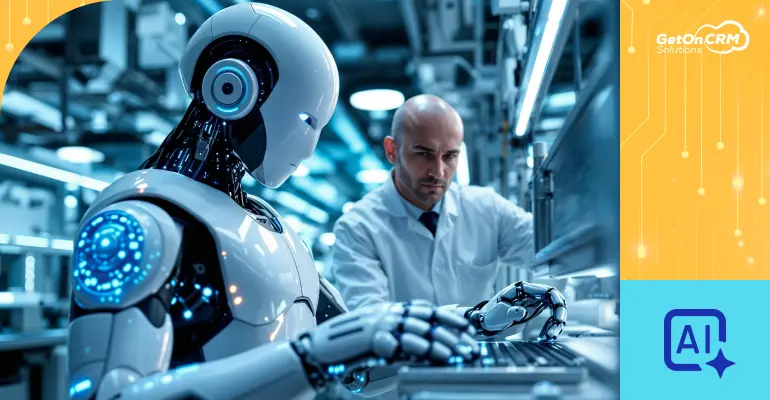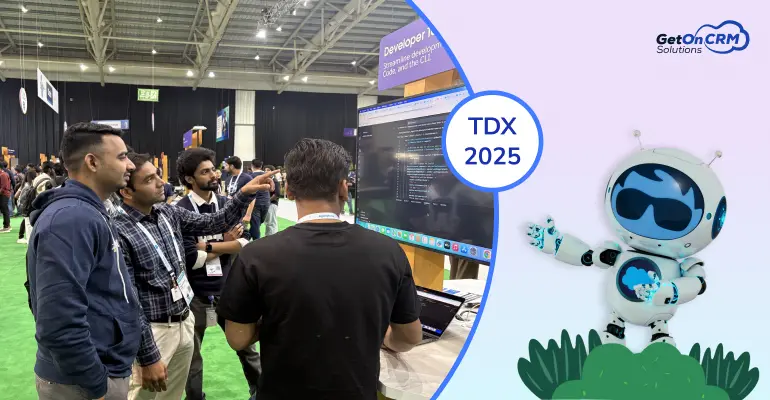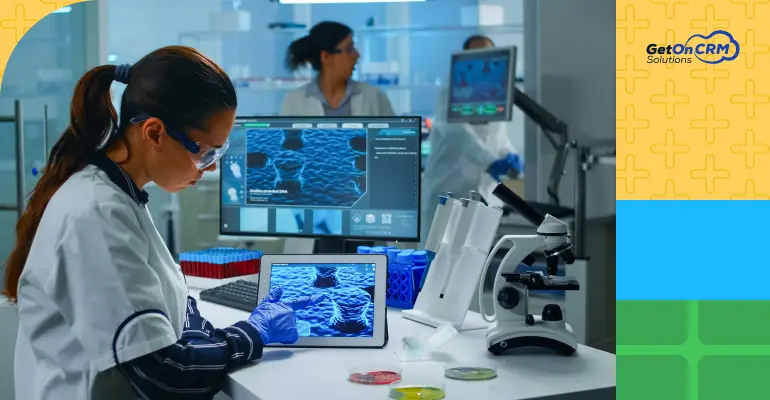The business landscape has witnessed a profound shift in recent decades, driven mainly by technological advancements. From the dawn of computing to the emergence of the internet, each epochal change has paved the way for newer paradigms. Enter the age of Artificial Intelligence (AI) – a revolution swiftly reshaping every facet of the corporate world. Within this vast domain, generative AI stands out, promising innovations hitherto imagined only in science fiction.
Combining the genius of Einstein with the linguistic prowess of AI, the customer service landscape is being reshaped, making long wait times and unsolved queries a thing of the past. This blog delves into the transformative potential of these technologies and how they are ushering in a new era of seamless and efficient customer experiences.
What is Generative AI?
Generative AI (or “generative machine intelligence”) is a subset of artificial intelligence (AI) focused on producing results similar to the data it was trained on. Simply put, this means generating images or text based on patterns learned during training – so imagine an AI capable of writing emails, designing artwork or even creating music! According to a 2021 Deloitte survey, more than 45% of global businesses had already integrated some form of generative AI into their operations.
Einstein GPT: A Glimpse into the Future
Einstein GPT can be seen as the racecar of generative AI technology. An offspring of Salesforce’s strategic vision, Einstein GPT promises to transform customer service. What sets this platform apart is its integration with Salesforce as a global CRM leader – something no other medium has done as seamlessly. However, adopting such advanced tech carries costs, most likely seen as investments into future customer service tools.
Einstein GPT wasn’t just another addition to the AI family; it brought groundbreaking features. Due to its ability to understand context, Einstein GPT could produce accurate responses yet also contextually pertinent.
Furthermore, unlike its predecessors, Einstein GPT possessed a more sophisticated understanding of human language nuances such as sarcasm, humour, and other subtleties allowing it to recognize subtleties such as sarcasm, humour or subtlety more accurately than ever.
Training data provided an additional edge. It allowed it to tap into a deeper pool of knowledge, thus making its outputs more diverse and inclusive. Adaptive learning capabilities ensured that AI became ever more brilliant over time, effectively learning from its mistakes.
Transform Business Operations: AI’s Expanding Role
Historically, businesses followed a set playbook: manual operations, face-to-face customer interactions, and traditional advertising mediums. AI has turned this playbook on its head. Today, with platforms like Einstein GPT, businesses can automate responses, predict customer behaviour, and tailor services in unprecedented ways, exemplifying AI’s revolutionary impact.
Why Generative AI is Crucial for Customer Service
Imagine having a workforce available 24/7, speaking multiple languages, and simultaneously addressing hundreds of customer queries. That’s the promise of generative AI. A study by IBM suggests businesses can save up to 30% in customer support costs using AI-driven automation. By leveraging AI, companies can cater to a global clientele seamlessly.
AI’s promise comes with pitfalls. Privacy remains a paramount concern. When chatbots collect user data, how is it stored? Is it sold?
In 2022, a chatbot faced backlash for exhibiting racial biases. That underscores the importance of unbiased AI training. Transparency is key. Businesses must inform users when interacting with a bot, ensuring the human touch remains an option.
The Synergy of Einstein GPT and Salesforce
Salesforce’s forte lies in its customer-centric approach, amplified exponentially with Einstein GPT. This integration takes CRM to the next stratosphere. Features become more intuitive, operations smoother, and customer service simply unparalleled. The Sales Cloud Einstein further exemplifies this synergy, offering services that marry CRM and AI like never before.
Understanding and harnessing this synergy requires deep expertise. At GetOnCRM, our experience as a Salesforce Silver Consulting Partner enables us to guide businesses seamlessly tapping into this potential.
The Bridge Between Generative AI and Customer Relationship Management (CRM)
CRM systems have been pivotal in managing and analyzing customer interactions. But the infusion of AI takes this to a new dimension.
What is CRM?
At its essence, CRM encapsulates strategies and tools businesses use to manage customer interactions. It’s about understanding customers, anticipating their needs, and fostering stronger relationships.
Benefits of AI with CRM
Integrating AI means CRMs can predict future trends, automatically segment customers based on behaviour, and offer real-time solutions—making businesses more proactive than reactive.
How Generative AI Enhances CRM Capabilities
With Einstein GPT, CRMs are no longer static. They evolve with every interaction, learning and refining their algorithms, ensuring businesses remain at the forefront of customer needs.
Also Read: How Salesforce Einstein is Highly Beneficial For Online Business?
Scaling Services with Generative AI and Einstein GPT
With AI’s entry into the CRM arena, businesses now have a potent tool. Think of Einstein Chat GPT – an AI-driven chatbot for instant customer responses. Such tools embody the perfect fusion of AI and CRM, where automation meets personalization.
Today’s business mantra? Scale or perish. Generative AI, especially platforms like Einstein GPT, equips businesses with the arsenal to scale like never before. From automated responses to predictive analytics, companies can optimize operations, ensuring that growth isn’t just rapid and sustainable.
Practical Steps: Incorporating AI into Business
Adopting AI isn’t merely about purchasing software. It’s a holistic process requiring strategic integration at every level. To truly leverage AI’s potential, businesses need a clear roadmap:
- Understanding core requirements.
- Choosing the right AI tools.
- Training staff to harness AI’s capabilities while being wary of common pitfalls.
Identifying Core Requirements
Before leaping into the world of AI, businesses must have a clear understanding of their needs. For instance, a retail company might benefit most from AI-powered recommendation engines, while a service-based firm could leverage AI to optimize customer support.
Netflix, a streaming giant, realized early that its vast content library could be overwhelming for subscribers. To enhance user experience, they turned to AI for personalized content recommendations, driving viewer engagement and reducing churn.
Choosing the Right AI Tools
Once core needs are identified, the selection of tools begins. Einstein GPT, for instance, is perfect for businesses embedded in the Salesforce ecosystem seeking to enhance customer interactions. Alternatively, a startup with tight budgets might start with open-source AI tools that cater to basic tasks before graduating to more comprehensive solutions.
Coca-Cola has been integrating AI into its operations. In vending machines, for example, they’ve employed AI to analyze non-personal data to understand user preferences and to make beverage recommendations. The tool selection was aimed at enhancing on-the-spot customer experiences.
Training and Upskilling Staff
The best AI tools are only as good as the people using them. Training sessions, workshops, and continual upskilling are paramount. Whether it’s a sales executive getting acquainted with Salesforce Einstein’s predictive insights or a customer service representative leveraging Einstein Chat GPT, proficient use can dramatically amplify outcomes.
Zappos, an online shoe retailer known for stellar customer service, recognized the potential of AI chatbots. However, instead of replacing human reps, they integrated chatbots to assist agents, offering swift responses while maintaining the human touch. Regular training ensured seamless integration.
AI adoption also necessitates training. At GetOnCRM, apart from consultation, we provide comprehensive training solutions, ensuring your team harnesses the full potential of Salesforce’s AI capabilities.
Pitfalls to Be Wary Of
AI is powerful, but not without challenges. Data privacy concerns, for instance, have become paramount. Additionally, while AI can predict, recommend, and automate, the human touch remains irreplaceable. Striking a balance is critical. Businesses must also be wary of over-automation, which could alienate customers or lead to overlooked nuances.
In 2016, Microsoft launched Tay, an AI chatbot on Twitter. The lack of content filters led to it generating inappropriate content within hours. The lesson? While AI can process vast information, nuances of human interaction can be challenging to perfect.
The Economic Side of AI
Every business decision boils down to economics. AI, despite its vast potential, comes with costs. However, these costs can be justified when viewed through the lens of long-term gains. The initial investment in AI often leads to exponential returns, with AI-driven businesses outpacing their traditional counterparts in efficiency and profitability.
Initial Investments
Venturing into AI often requires a significant upfront investment. That isn’t just about purchasing software; it encompasses infrastructure upgrades, training, and sometimes even recruitment of specialists. While incredibly powerful, Salesforce’s integration with Einstein GPT might demand a business reassess its budgetary allocations.
Sephora, the global cosmetics brand, ventured into AI with its Virtual Artist App, allowing users to try on makeup virtually. The initial investment in technology and app development was significant, but the payoff in user engagement and online sales proved worth the cost.
Long-Term Gains
While initial costs can be daunting, the ROI of AI integration is often impressive. Take the case of a global e-commerce giant that utilized AI to optimize its warehousing and logistics. Within a year, operational costs plummeted, and efficiency skyrocketed, validating the initial expenditure.
American Express employs AI to analyze billions of past transactions to identify potential fraud. While the setup costs were substantial, the savings from detected fraudulent activities and customer trust gained are invaluable, ensuring a high ROI.
Comparative Outcomes
Traditional businesses often operate on established norms, which, while reliable, might not offer competitive advantages in today’s dynamic landscape. In contrast, AI-driven enterprises, leveraging tools like Einstein GPT, not only optimize existing processes but also uncover new avenues of growth and revenue. The distinction in outcomes, over time, is palpable.
Instead of traditional job interviews, Unilever started using AI to scan video interviews of entry-level hires. The system saved hundreds of hours in HR time and resulted in more diverse recruitment, with the number of campuses they recruited jumping from 840 to over 2,600.
Conclusion
AI integration into customer service becomes inevitable as our world transitions toward an increasingly digital future. Tools like Einstein GPT aren’t novelties; they mark an evolutionary phase for businesses embracing this change with open arms. Now is an era driven by AI; companies embracing these technologies will survive and prosper!
Einstein GPT, Salesforce and other forms of AI are more than mere technological tools; they’re heralds of an increasingly efficient and intelligent future where businesses operate with unprecedented efficiency and intelligence. Here, the expertise of dedicated Salesforce Einstein Consulting Services by GetOnCRM becomes invaluable. We navigate this digital transition seamlessly by harmonizing technological capacities with human interaction dynamics.
Frequently Asked Questions (FAQs)
How is AI revolutionizing business operations?
AI is at the forefront of a business revolution, from automating mundane tasks to making data-driven decisions. By offering tools that optimize operations and enhance customer experiences, AI ensures businesses are equipped for the future.
What is the best CRM for small businesses?
The best CRM often depends on the specific needs of the business. However, platforms that offer scalability, integration capabilities, and intuitive features are favourites.
What does Salesforce Einstein do?
Salesforce Einstein is like the brain behind the Salesforce platform. It offers predictive insights, automates tasks, and provides recommendations, ensuring businesses can interact efficiently with customers.


